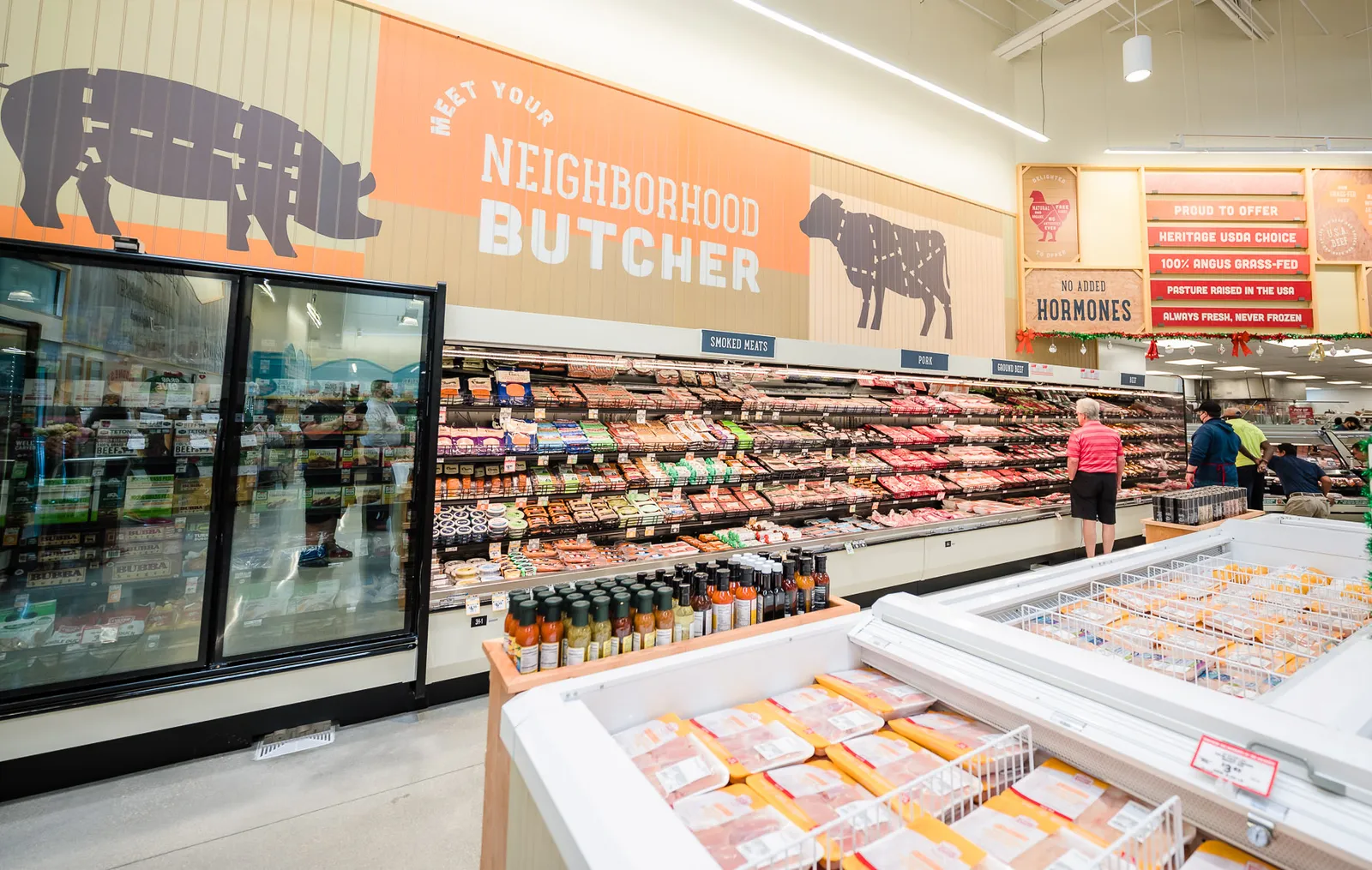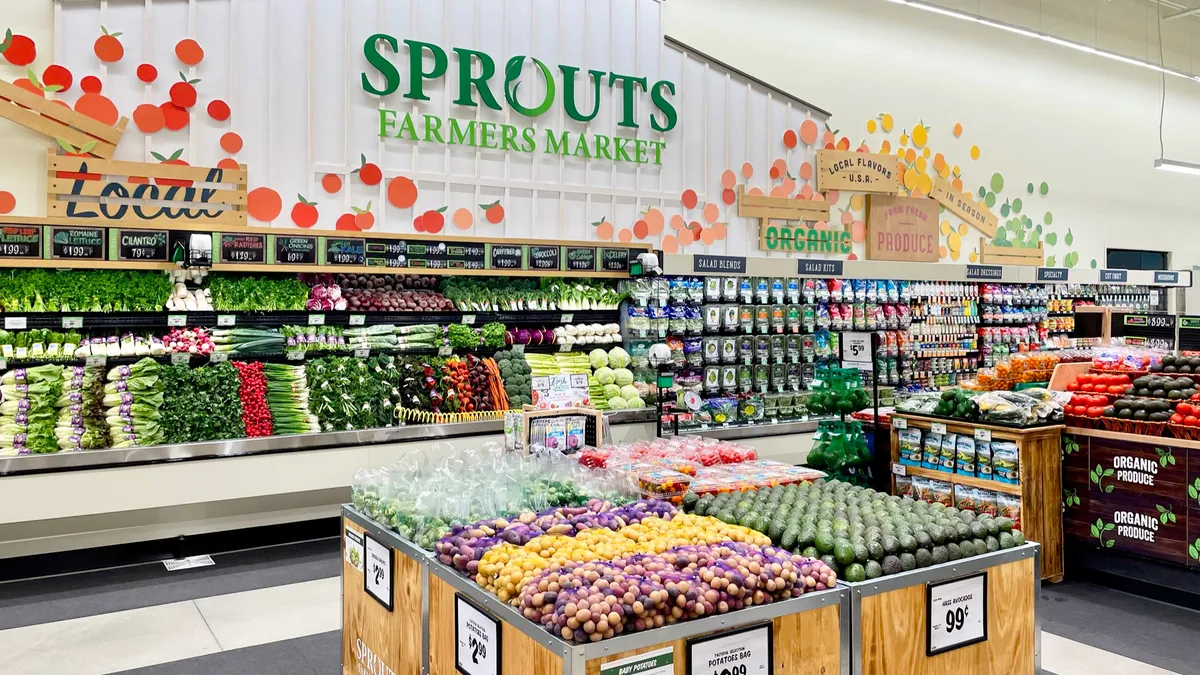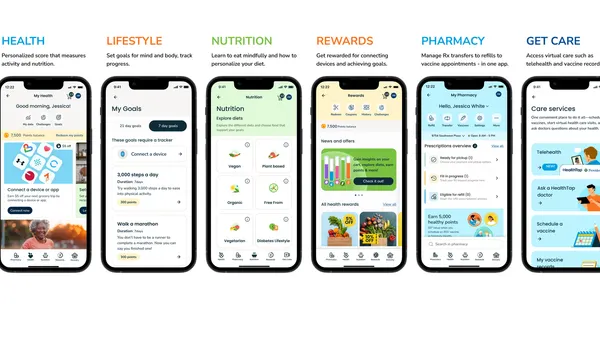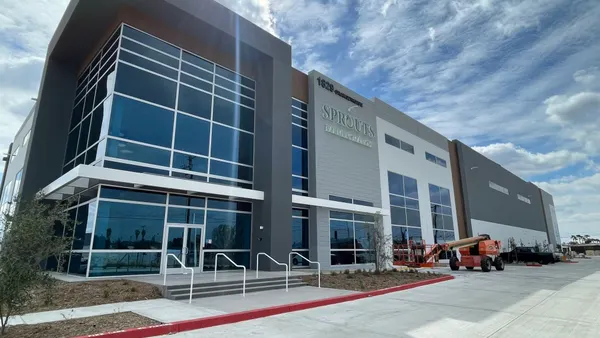Blossoming plant-based sales, refrigerant transitions and bag changes are among the updates on sustainability work from Sprouts Farmers Market in its newly released Environmental, Social and Governance (ESG) Report for 2022.
In March 2022, the grocer replaced its credit facility with a $700 million revolving credit facility tying an adjustable interest rate to ESG metrics, such as the diversity composition of the company’s board of directors and sales of products with environmental and social sustainability attributes.
As of Jan. 1, 38% of the grocer’s board of directors identified as “female or racially/ethnically diverse.” In 2022, $3.2 billion in sales were products with a social or environmental attribute.
The grocer said that when it achieves those ESG targets, it receives a five basis point reduction on its interest rate on drawn amounts and one basis point reduction on unused amounts — an arrangement providing “tangible savings,” the report noted.
“We believe this sustainably linked credit facility represents an important alignment of our financing strategy and ESG goals and delivers positive outcomes for all our stakeholders,” per the report.
Sprouts noted that organic items made up 26% of the products it sold in 2022 — up from 24% in 2021. In addition, the grocer saw more than $200 million in sales of products from minority- and women-owned businesses last year. The grocer also launched 8,400 new products and added more than 400 new private label items, per the report.
The specialty grocer noted that its plant-based alternatives sales grew 21% in 2022 over the prior year. To call out plant-based items to customers, Sprouts said it uses in-store messaging, has a destination for innovative seafood alternatives, such as plant-based tuna, and uses product promotions like “Plant-Based Tastes Great” to encourage trial.
The grocer noted its new store format, which at around 23,000 square feet is 23% smaller on average than its previous store design, places more of an emphasis on plant-based items, with a dedicated frozen bunker making it easier to find customer favorites and innovative items.

Sprouts said its smaller format stores are an “important” part of its work to offset emissions growth.
“This 23% decrease in average store size will reduce our emissions intensity on a per store basis,” the grocer said in the report.
Along with the smaller format, Sprouts said it is investing in new carbon dioxide refrigeration in an unspecified number of markets by replacing refrigerants with high global warming potential (GWP) with low-GWP options and using automated refrigeration leak detection monitoring systems. The grocer is also turning to technologies to drive energy efficiencies in its stores and distribution centers, including LED lighting and energy management systems to track energy consumption.
On the emissions front, Sprouts finished its Scope 3 carbon emissions inventory.
“Purchased goods was the most intensive of our Scope 3 emissions categories. We partnered with HowGood, an independent research company with a robust product sustainability database,” to give granular emission factors of 33,000 ingredients, which will be used to help the grocer’s supply chain strategy, the report noted.
By the end of this year, Sprouts said it is committed to doing away with single-use plastic and paper bags at its checkout lanes. Last year, the grocer started working on a plan to accomplish this goal, per the report.
While non-recyclable polystyrene packaging “is prevalent in most grocery dairy and meat departments,” Sprouts said that it is aiming to get rid of all non-recyclable polystyrene meat trays by the end of 2023. Already, the company has transitioned 2.5 million trays “from polystyrene to widely recyclable #1 PET trays.”
“We carried the momentum from 2022 into 2023," CEO Jack Sinclair said in the report about the grocer’s sustainability work.












